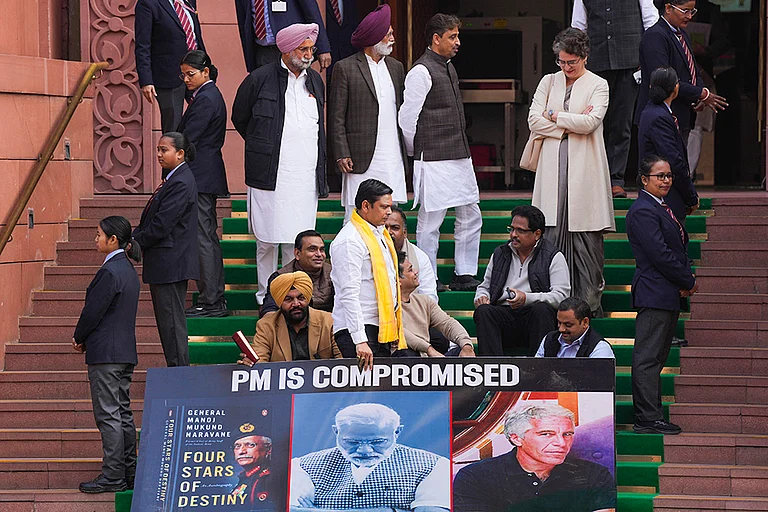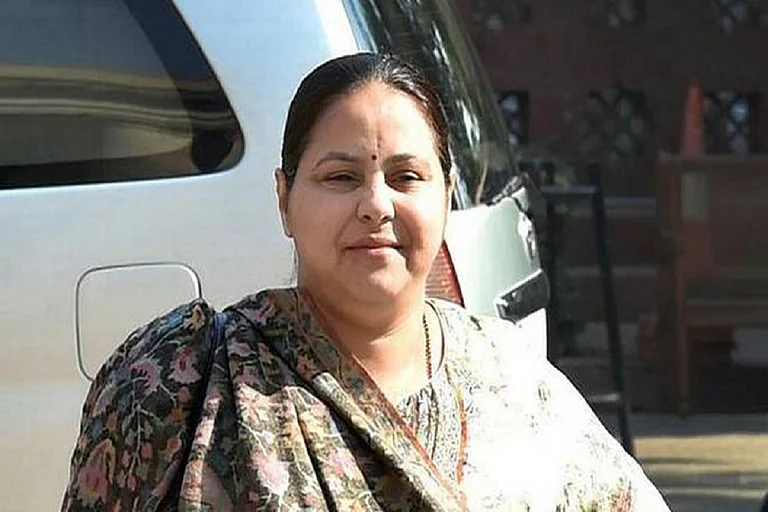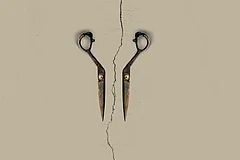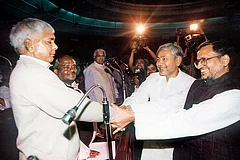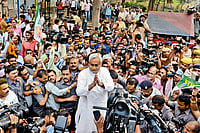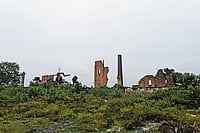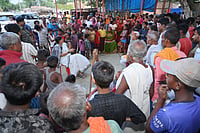From starting out in a small, family-run sweet shop, to being a grassroots politician for nearly four decades, to now becoming the first Communist Party of India (Marxist-Leninist) Liberation MP in 35 years, OBC leader Sudama Prasad’s journey has been an incredible one.
Prasad’s win is significant on two counts—despite coming from a deprived background, he managed to defeat an influential leader like Singh, and his win has ensured the party’s entry into Parliament after more than three decades. Prasad will be one of two CPI (ML) Liberation MPs in the 18th Lok Sabha. Raja Ram Singh, 66, won the Karakat seat in South Bihar, defeating the NDA’s Upendra Kushwaha, and Bhojpuri actor Pawan Singh, who contested as an Independent.
Arrah happens to be the same Lok Sabha seat from where the party won the General Elections nearly three decades ago. In 1989, Rameshwar Prasad, the Indian People’s Front (IPF) leader, won from then Ara. The IPF was a CPI (ML) Liberation organisation which was set up to contest elections because at that time the party was underground. Later, the IPF was dissolved.
After 1989, the party could never win a Lok Sabha seat in Bihar. “We lost our voters to socialist leader Lalu Prasad Yadav after he emerged as a big leader. We are now hoping to regain our support base,” says CPI (ML) Liberation leader Kunal.
A two-time MLA, Prasad fought to protect Bihar’s public libraries, led the paddy procurement movement, and agitated for projects to develop Bhojpur.
Those close to him say that he got drawn towards grassroots politics right from his childhood. His father Ganga Dayal Sah used to run a small sweet shop in the village and Prasad used to accompany him. The repeated feudal and police atrocities that the family had to face impacted Prasad and later, when he grew up, he became inclined towards CPI (ML) Liberation, which was emerging as a strong resistance force against upper-caste atrocities.
Prasad passed his matriculation examination in 1978 and then took admission in a local college, but left his studies midway and became a full-time worker of the party. In the early years of CPI (ML) Liberation, he was active in the cultural organisation and helped in staging street plays.
In 1984, he was elected IPF secretary for Bhojpur-Rohtas districts and in 1989 he started the Bhojpur Jagao-Bhojpur Bachao movement. He agitated for a long time on the issues of modernisation of canals, construction of the Kadvan reservoir, construction of bridges on the Son and Ganga rivers, and construction of the Arrah-Sasaram broad gauge railway line, among others.
Situated at the confluence of the Ganga and Son rivers, Arrah is home to quality golden sand. But illegal sand mining has dried-up the Son river bed near Arrah, posing environmental and economic concerns. The 2024 election in Arrah featured a battle between development promises and social justice issues.
“Demonetisation and later Covid-19 have broken the back of the khudra vyapari (retail traders) here. They have not been able to recover to date. We will work for them”
During his decades-long activism, Prasad also had to face jail time. He was arrested for the first time in 1985 in a police raid in Bhojpur and spent 22 days in jail. In 1989, he went to jail for the second time for participating in a meeting organised against the murder of party leader Baijnath Chaudhary in Ekwari village of the district and spent about 2.5 years in jail.
In 1990, he contested his first election from the Arrah assembly seat on an IPF ticket from jail, but lost. He contested again from the Arrah assembly in 2005 and from the Jagdishpur assembly in 2010. He tasted his first success in 2015 when he contested assembly elections from the Tarari seat in Bhojpur. In 2020, he again won from this seat. In 2009, he contested his first General Elections from the Buxar Lok Sabha seat, but lost.
What worked for him in these elections was effective door-to-door campaigning. “We did not have any star campaigner, so we focused on this. A team of 10-12 people was formed for each panchayat, who went door-to-door to meet people and convince them to vote for Sudamaji,” a CPI (ML) Liberation activist, who was part of his election campaign, says.
“As a policy, we do not accept electoral bonds, so we asked people to fund our election expenditure. We printed a coupon of Rs 20 and went door-to-door to appeal to people to pay at least Rs 20 as a donation. We gave them coupons in lieu of donation,” he adds.
Sharing his campaign journey, Prasad says: “This election taught me that if you are a public representative, you have to be there for them when they need you the most.”
“Aam Janta apse sone ka mahal nahi chahti hai (The general public does not expect you to build golden palaces for them). They want you to be with them in their tough times. If their crops get damaged, if their huts get washed away in floods, then you should reach out to them and help them in whichever way you can. Even if you are unable to help, you should be seen trying to help,” he says. While he was an MP, Prasad was often seen visiting villages in his region and helping people. Perhaps this was the biggest shortcoming of Singh; he never visited his constituency, say political experts.
“While campaigning, we would often ask people if they got an opportunity to garland their MP. They would say that forget garlanding, they had never seen their MP ever. They were angry with Singh and we were confident that we would win,” says Prasad.
The people of Arrah rejected Singh so their expectations from Prasad are definitely very high. Arrah is mainly an agricultural region, so agriculture-based initiatives are needed here. There is also a need to provide better facilities to farmers. In this context, it helps that Prasad is associated with the agricultural organisation of CPI (ML) Liberation.
“My priority is to set up agriculture-based industries in the region because the economy here is driven by agriculture. A large part of our area is irrigated through government borings, but 80 per cent of the borings are lying defunct; they have to be repaired. The paving of the Son canal will also be our priority as it is a lifeline for farmers,” says Prasad.
Demonetisation and later Covid-19 have broken the back of the khudra vyapari (retail traders) here. They have not been able to recover to date. We will work for them, he adds.
For CPI (ML) Liberation, which is all set to enter Parliament from Bihar after three decades, this can also be an opportunity to increase its support base in the state. “We will fight for people in Parliament the way we have been fighting on the roads,” says Prasad.
MORE FROM THIS ISSUE
(This appeared in the print as 'Red Revival')
Umesh Kumar Ray is a Bihar-based independent journalist









